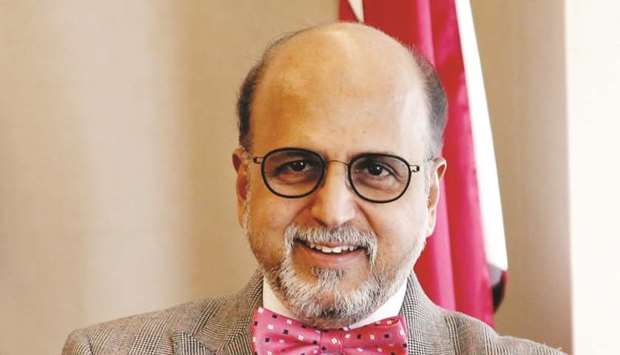According to WTO, world merchandise trade volume is forecast to grow 2.6% in 2019. The value of merchandise trade was up 10% to $19.48tn in 2018, partly due to higher energy prices.
The top exporters of merchandise trade in 2018 include China, the US, Germany, Japan and the Netherlands. The top importers of merchandise trade in 2018 include China, the US, Germany, Japan and the UK. The value of commercial services trade rose 8% to $5.80tn in 2018. The top exporters of commercial services trade include the US, UK, Germany, France and China. The top importers of commercial services include the US, China, Germany, France and the Netherlands.
The trade dispute between the two economic superpowers further escalated when Trump in May 2019 raised tariffs on $200bn of Chinese goods from 10% to 25%. China had responded with tariffs on $60bn of US imports from June 1, 2019. We need to wait and see the outcome of G20 meeting in this month end for any progress on trade talks.
The 17 SDGs of the 2030 Agenda for Sustainable Development came into force from the beginning of 2016 after adoption of the same at the UN Sustainable Development Summit in September 2015.
International trade is considered an important means of implementation for inclusive economic growth and poverty reduction, as recognised in goal 17 of SDG. This goal on partnership calls for the promotion of the rules-based multi-lateral trading system, and duty-free and quota-free market access for least developed countries.
In addition, about 20 targets are related to international trade in its functional form, i.e. expanding trade in goods and services, creating employment, diffusing technology and protecting natural resources. Inclusive growth and financial inclusion cannot be pursued if trade war tensions escalate.
Global trade has been a significant contributor to poverty reduction, however, challenges remain to make sure that all people can reap the benefits of trade. Ending hunger, achieving food security, and improved nutrition by 2030 as called for in SDG 2 is mainly about domestic policy outcomes, although agricultural trade can be a vital means. Those countries who are dependent on food imports, could be impacted if trade war tensions impact their food security.
Strengthening the contribution of trade liberalisation to gender equality is not only needed for equity concerns, but also for long-term growth prospects. The gender implications of trade reforms should be assessed on a case-by-case basis. Hence the trade war needs to necessarily impact gender equality.
The top four emitters in carbon emissions were China, the US, the European Union and India. G20 countries which account for 85% of global GDP and 80% of CO2 emissions should adopt a combination of pro-growth and pro-environment policies in developing their overall growth and development strategies.
By bringing together the growth and climate agendas, rather than treating climate as a separate issue, could add 1% to average economic output in G20 countries by 2021 and lift 2050 output by up to 2.8%.
Energy security is also an important dimension which should be looked into. Infrastructure is at the heart of economic growth and yet there has been chronic underinvestment in most G20 countries. Limiting the global temperature rise to below 2 degrees, in line with the Paris agreement, will require $6.9tn per year in infrastructure investment between now and 2030, only 10% more than the carbon-intensive alternative. At the G20 environment and energy ministers meeting held this month, they agreed to the outline of a new international framework in order to tackle the problem of marine plastic waste.
Implementing the EU multi-lateral environment agenda / Doha Declaration on trade and environment opened trade for environmental goods and services: no quota/no tariff trade for goods and services that contribute to combating climate change. It had objective of 10% of bio fuels in road transport by 2020.
The EU focused on sustainably produced biofuels. Biofuels should be produced in a sustainable way to bring real benefits. UK has unveiled road map for 2050 net zero carbon target this year, is a first for a major economy. If trade war escalates it could impact flow of funds to climate related infrastructure. It is not just the global growth which is under risk from trade tension escalations. The escalation of trade war could impact humanity.
* Dr R Seetharaman is Group CEO of Doha Bank.

Dr R Seetharaman is Group CEO of Doha Bank.
